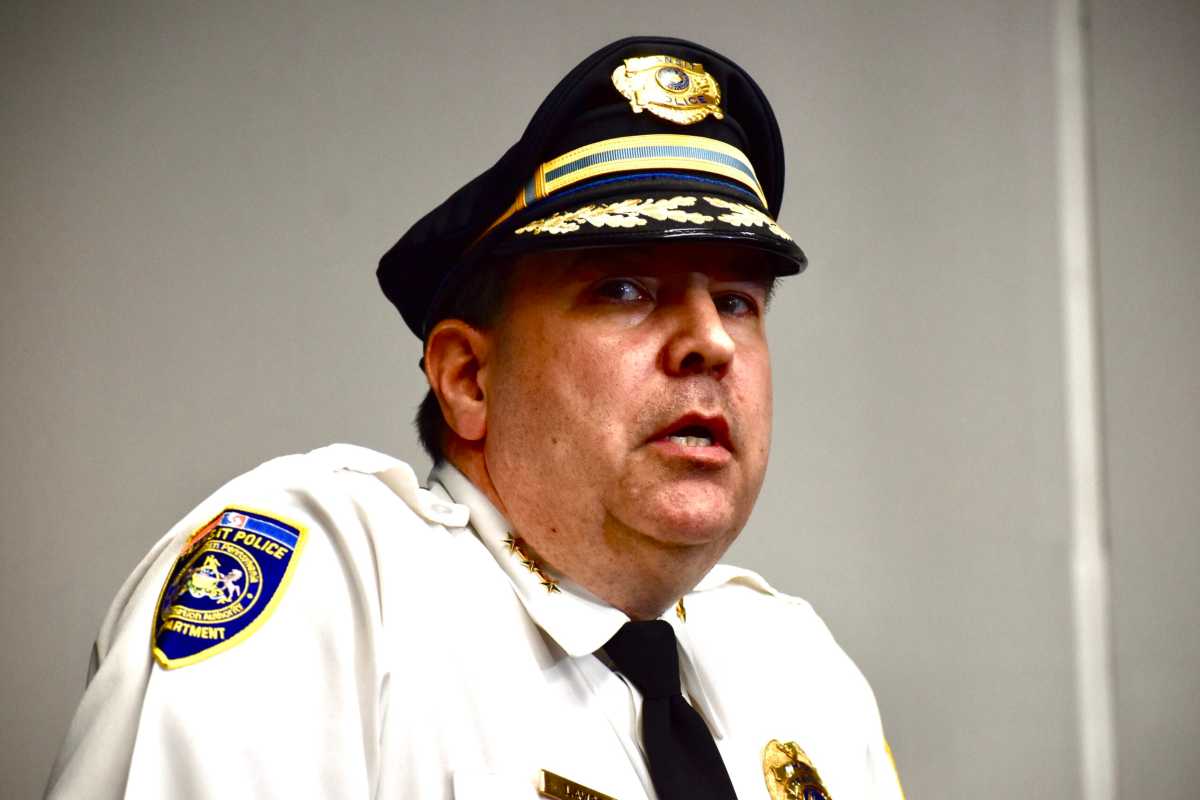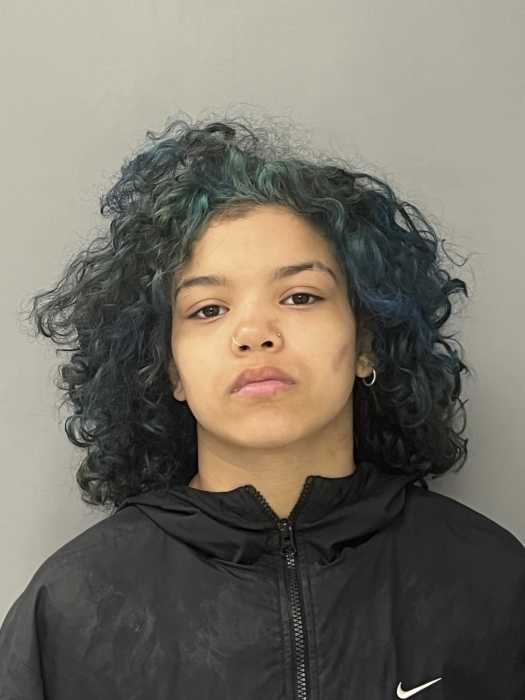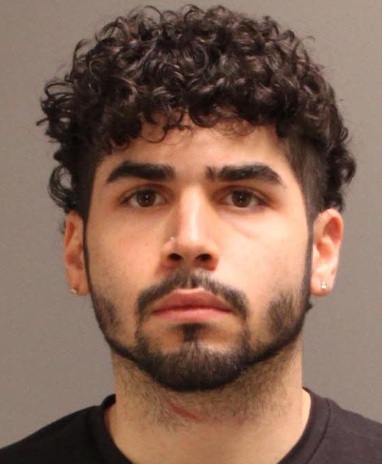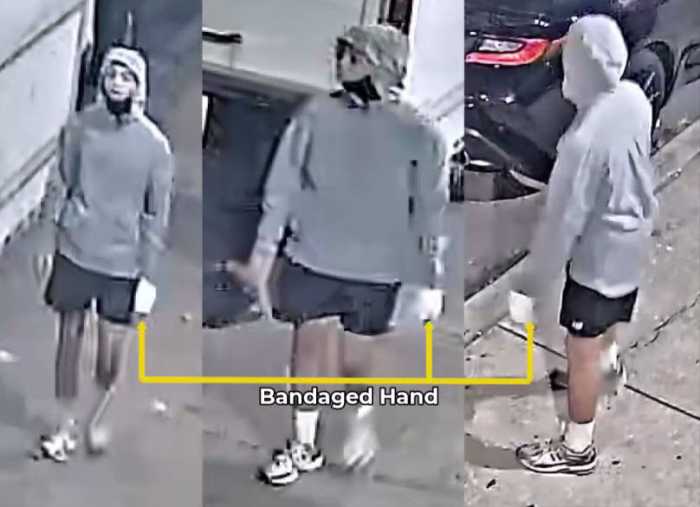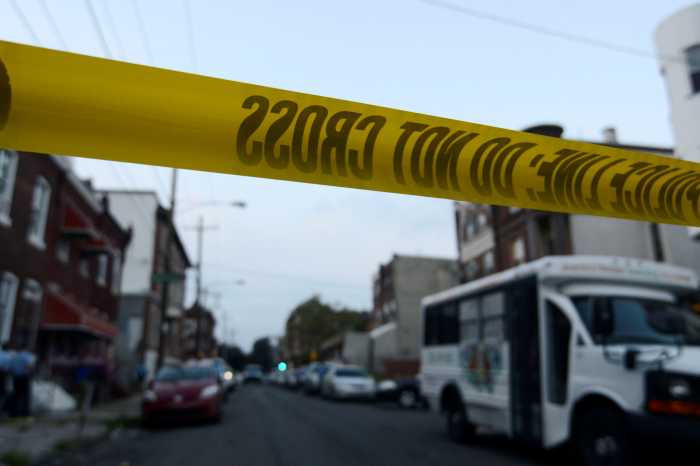SEPTA’s transit police chief said Wednesday that his officers will be “aggressive” about frisking riders in an attempt to tackle illegal gun use following a series of shootings on or near buses that have left at least three people dead since Sunday night.
The authority’s largest union, meanwhile, sent a letter to Gov. Josh Shapiro and other elected leaders asking them to follow in New York’s footsteps and deploy the National Guard to the transit system.
On Tuesday, just after 6:30 p.m., a man fatally shot 37-year-old Carmelo Drayton near 13th Street and Snyder Avenue in South Philadelphia after the pair exchanged words and got into a physical altercation aboard the Route 79 bus.
The masked suspect got off the bus, pulled out a handgun and fired two shots directly at Drayton, who was inside the vehicle near the door, according to authorities. Police said the gunman ran to the Broad Street Line’s nearby Snyder station, hopped a turnstile and rode the train to the Oregon stop.
A day earlier, two shooters unloaded on a Route 6 bus that was picking up passengers, including a crowd of students, at Ogontz and Godfrey avenues. The gunfire killed Dayemen Taylor, 17, and injured four other people.
And on Sunday night, 27-year-old Sawee Kofa was fatally shot after he and his killer exited a Route 59 bus in Oxford Circle.
No one has been arrested in connection with any of the shootings, though Deputy Police Commissioner Frank Vanore said Wednesday that investigators were making significant progress and “moving toward identifying” suspects in all three incidents.
Aggressive action will be taken by SEPTA police in wake of recent shootings
SEPTA Transit Police Chief Charles Lawson, during a news conference Wednesday at the authority’s headquarters, told reporters that his department is going to step up enforcement on buses and elsewhere.
He also endorsed the increased use of stop-and-frisk, also known as “Terry stops,” as a tactic to catch those illegally carrying firearms on public transit. The policing tactic, which has been criticized for its unequal racial impact, has been promoted by new Mayor Cherelle Parker.
“We’re going to remain constitutional in our actions, but we are going to be aggressive,” Lawson said.
Lawson said transit officers are going to target “every criminal code on the books,” specifically mentioning fare evasion, drug use and the wearing of masks. City Council in December passed a law banning Pooh Shiestys and other facial coverings on public transit and in other settings.
In addition, Philadelphia Police Department patrol officers will be increasingly conducting check-ins with bus drivers, Lawson said.
SEPTA is also exploring upgrading the operator compartment to incorporate bulletproof glass to better protect drivers, officials said. In Monday’s shooting, Drayton was directly in front of the operator when he was shot, according to authorities.
Transport Workers Local 234, which represents thousands of SEPTA workers, penned a letter Wednesday to Shapiro, Parker and others asking them to call in the National Guard. New York Gov. Kathy Hochul on Wednesday said she is sending 750 guard members and 250 officers from the state-controlled MTA into New York City’s subway system to combat crime.
“That’s the only way we can come to deter crimes before they occur, rather than having to deal with the tragic aftermath,” Local 234 President Brian Pollitt said in the letter.
Shapiro is not considering deploying the National Guard to SEPTA at this time, a spokesperson from the governor’s office told Metro. He previously rejected a suggestion from Parker that the guard be used to shut down drug activity in Kensington.
The governor, in his budget proposal, has tied an increase in funding for SEPTA to the authority acting to enhance safety and cleanliness on the system. SEPTA leaders say the additional money would help bridge the authority’s “fiscal cliff.”
Overall, crime on public transit is not “out of control,” Lawson said, with most offenses being down compared to recent years. But gun violence has remained a stubborn problem, he said.
“What we can definitively say is overwhelmingly the pattern that we see in our system is that individuals who are armed – overwhelmingly illegally – get into verbal arguments which escalate to violent encounters and then the armed individual uses the weapon,” Lawson added.
SEPTA employees impacted by violence can access the company’s employee assistance program, which provides up to six free telehealth or in-person counseling sessions through Penn Behavioral Health, said Amy Colucci, the authority’s occupational health clinical specialist.
A counselor was sent to provide services Wednesday to the Allegheny bus depot, and SEPTA is working on sending therapists to other work sites, Colluci said.



